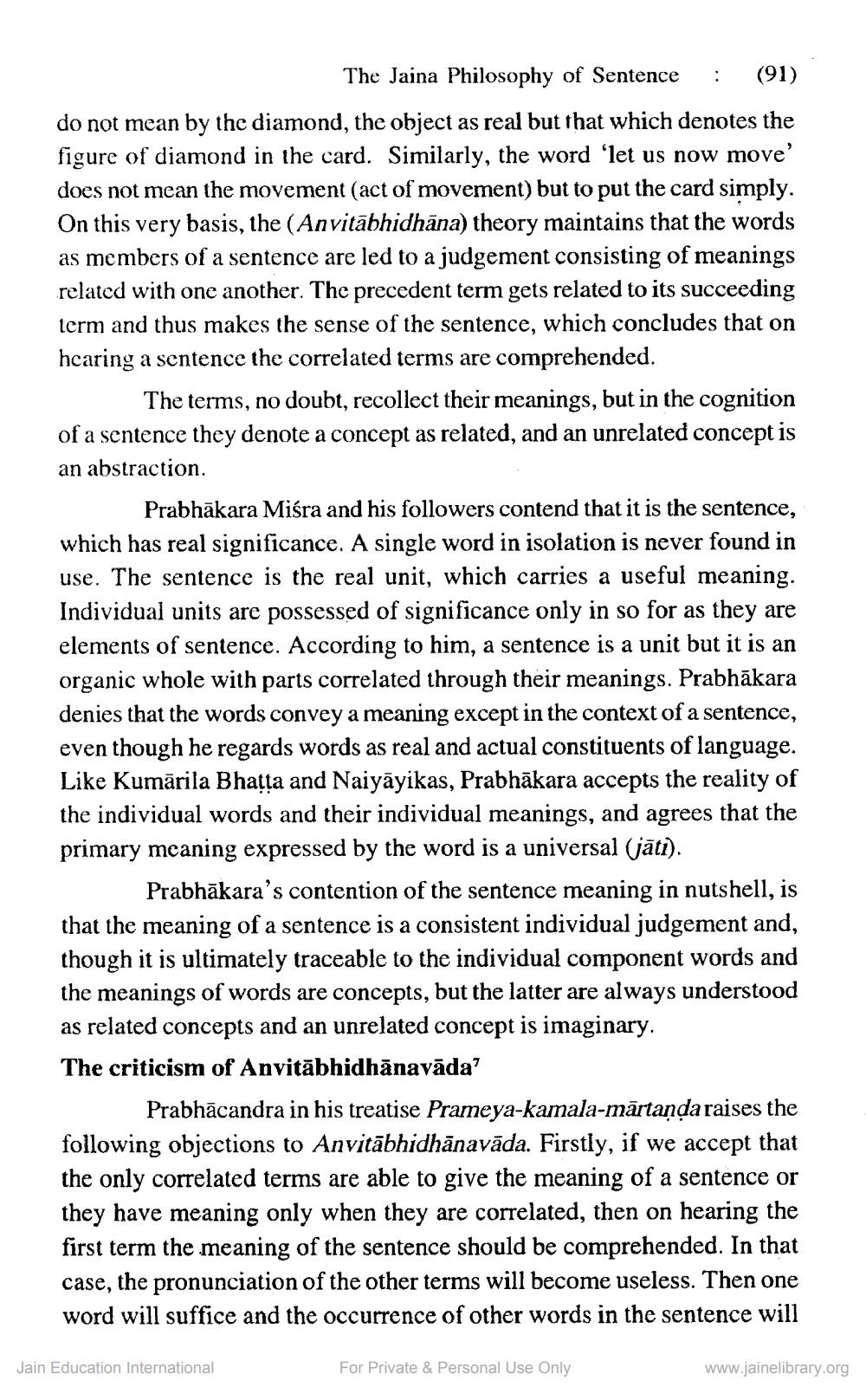________________
The Jaina Philosophy of Sentence : (91) do not mean by the diamond, the object as real but that which denotes the figure of diamond in the card. Similarly, the word 'let us now move' does not mean the movement (act of movement) but to put the card simply. On this very basis, the (Anvitābhidhāna) theory maintains that the words as members of a sentence are led to a judgement consisting of meanings related with one another. The precedent term gets related to its succeeding term and thus makes the sense of the sentence, which concludes that on hearing a sentence the correlated terms are comprehended.
The terms, no doubt, recollect their meanings, but in the cognition of a sentence they denote a concept as related, and an unrelated concept is an abstraction.
Prabhakara Miśra and his followers contend that it is the sentence, which has real significance. A single word in isolation is never found in use. The sentence is the real unit, which carries a useful meaning. Individual units are possessed of significance only in so for as they are elements of sentence. According to him, a sentence is a unit but it is an organic whole with parts correlated through their meanings. Prabhakara denies that the words convey a meaning except in the context of a sentence, even though he regards words as real and actual constituents of language. Like Kumārila Bhaṭṭa and Naiyāyikas, Prabhākara accepts the reality of the individual words and their individual meanings, and agrees that the primary meaning expressed by the word is a universal (jāti).
Prabhakara's contention of the sentence meaning in nutshell, is that the meaning of a sentence is a consistent individual judgement and, though it is ultimately traceable to the individual component words and the meanings of words are concepts, but the latter are always understood as related concepts and an unrelated concept is imaginary.
The criticism of Anvitābhidhānavāda
Prabhācandra in his treatise Prameya-kamala-mārtaṇnda raises the following objections to Anvitābhidhānavāda. Firstly, if we accept that the only correlated terms are able to give the meaning of a sentence or they have meaning only when they are correlated, then on hearing the first term the meaning of the sentence should be comprehended. In that case, the pronunciation of the other terms will become useless. Then one word will suffice and the occurrence of other words in the sentence will
Jain Education International
For Private & Personal Use Only
www.jainelibrary.org




